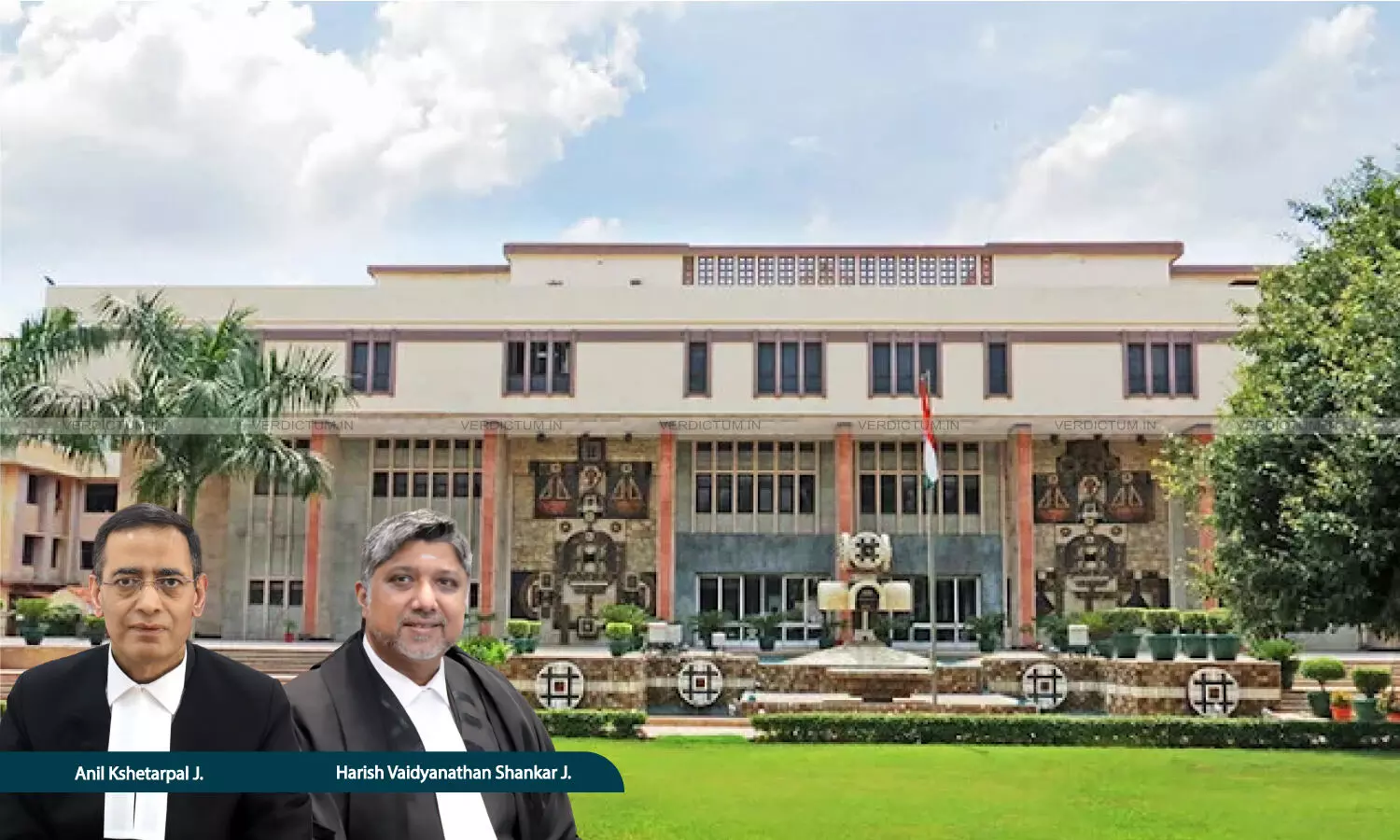
Justice Anil Kshetarpal and Justice Harish Vaidyanathan Shankar, Delhi High Court
Delhi High Court: Widowed Daughter-In-Law Can Claim Maintenance From Father-In-Law’s Coparcenary Property, Not Self-Acquired Assets
 |
|A widow challenged the rejection of her maintenance plea under HAMA after the deaths of her husband and father-in-law.
The Delhi High Court has held that a widowed daughter-in-law is entitled to claim maintenance from the estate of her father-in-law, but only to the extent of his coparcenary property, and not from his self-acquired or separate assets.
A plea was filed by a woman whose husband passed away in March 2023, and whose father-in-law had died earlier in December 2021. The widow had challenged the dismissal of her maintenance application filed under Sections 19, 21, 22, and 23 of the Hindu Adoptions and Maintenance Act, 1956 (HAMA), by both the family court and a single judge of the High Court.
A Division Bench of Justice Anil Kshetarpal and Justice Harish Vaidyanathan Shankar emphasized, “Section 19(1) of the HAMA confers upon a widowed daughter in-law a statutory right to claim maintenance from her father-in-law, thereby recognising his legal obligation in form of a liability to provide for her sustenance in event of the demise of her husband. However, upon reading of Section 19(2) of the HAMA, it is noted that such statutory right of the widowed daughter-in-law creating a legal obligation upon the father-in-law, poses a significant restriction to the liability conferred upon the father-in-law.”
It added, “The provision limits the liability of the father-in-law only to the extent of his coparcenary property. While making it abundantly clear that if the father-in-law does not possess any coparcenary property and maintenance is sought from his self-acquired property or any other assets that do not qualify as a coparcenary property, the widowed daughter-in-law will have no enforceable right.”
Senior Advocate Vikas Singh appeared for the Petitioner, and Senior Advocate Parag P Tripathi appeared for the Respondents.
The Court clarified, “The language used in this clause implies that a widowed daughter-in-law is entitled to claim maintenance from her father-in law's estate, contingent upon her status as a dependant, who is unable to secure maintenance from her husband's estate, or from her own or her children's estate.”
However, the Court made an important distinction that if the father-in-law did not possess any coparcenary property, and the widow sought maintenance from his self-acquired or other non-coparcenary assets, no enforceable right would arise in her favour. The Bench reasoned that the statutory obligation under Section 19(1) of HAMA is specifically confined to coparcenary property and does not extend to other forms of property.
Further, the judgment reflected on the purpose and spirit of HAMA as a social welfare legislation, intended to balance traditional Hindu family norms with principles of equity and protection for vulnerable family members.
The Court concluded by stating that destitute widowed daughters-in-law must not be denied maintenance in cases where the father-in-law has left behind coparcenary assets, and reiterated that a liberal interpretation of the statute is necessary to advance its welfare-oriented objectives. It added, “More so due to the reason that even prior to the codification of the HAMA, the scriptures of Hindu Law acknowledged the inherent moral responsibility of the father-in-law to provide for his widowed daughter-in-law. A duty that was moral has now been changed into a legal obligation by conferring upon the widowed daughter-in-law a statutory right to claim maintenance from her father-in-law‟s estate under Section 19(1) of HAMA.”
Thus, while disposing of the plea, the High Court upheld the principle that the right to claim maintenance exists, but it is conditional upon the availability of coparcenary property in the father-in-law’s estate.
Cause Title: Geeta Sharma v. Kanchana Rai & Ors., [2025:DHC:7047-DB]
Appearance:
Petitioner: Senior Advocate Vikas Singh, Advocates Varun Singh, Deepeika Kalia, Alankriti Dwivedi, Somesa Gupta, Vasudha Singh & Sudeep Chandra
Respondents: Senior Advocates Parag P Tripathi, Trideep Pais, Advocates Niyati Kohli, Pratham Vir Agarwal & Nilay Gupta, Shravanth Shanker